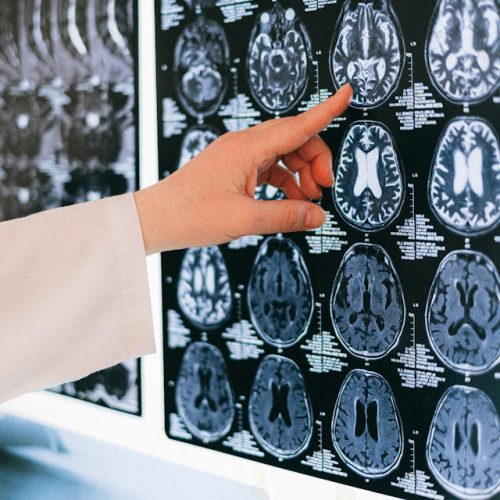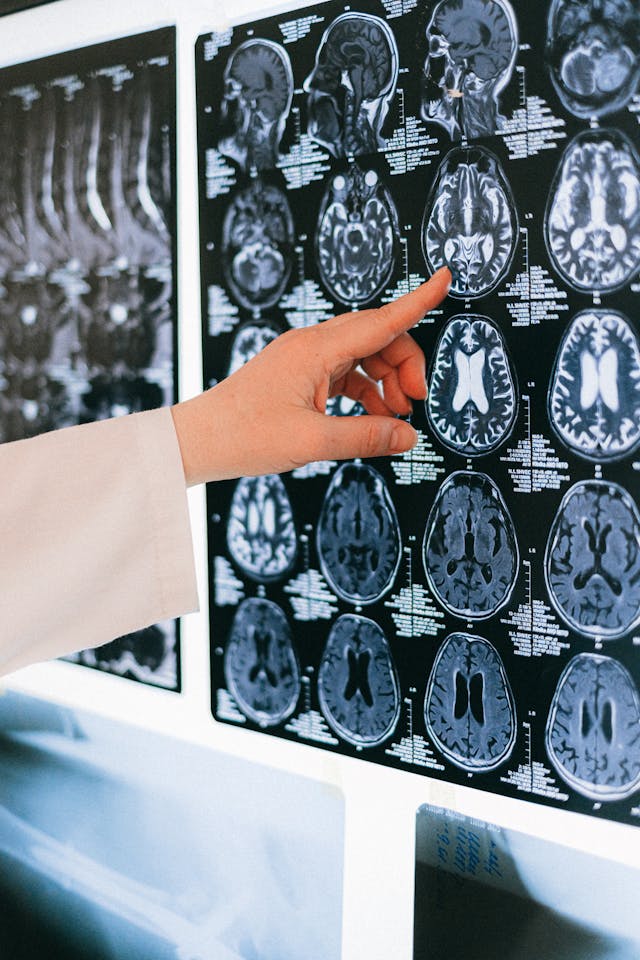Anxiety and depression are two of the most common mental health conditions, and they often occur together. While they are distinct disorders, anxiety can be a significant symptom of depression.
This article explores how anxiety relates to depression, providing detailed information on the signs, causes, diagnosis, treatment options, and prevention strategies. Additionally, it offers guidance on how to discuss these symptoms with a healthcare provider.
Signs
Anxiety as a symptom of depression can manifest in various ways. Recognizing these signs can help in identifying the underlying depression:
- Excessive Worrying: Persistent and uncontrollable worry about everyday situations.
- Restlessness: Feeling on edge, unable to relax, or constantly nervous.
- Fatigue: Experiencing tiredness despite adequate rest, often linked to the mental exhaustion of constant worry.
- Difficulty Concentrating: Trouble focusing or having a mind that goes blank frequently.
- Irritability: Increased sensitivity and irritability towards minor issues.
- Muscle Tension: Frequent muscle tightness or soreness without a physical cause.
- Sleep Disturbances: Difficulty falling asleep, staying asleep, or having restless, unsatisfying sleep.
Causes
Understanding the factors that contribute to anxiety in the context of depression can help in managing and treating these conditions:
- Biological Factors: Imbalances in neurotransmitters like serotonin and dopamine can affect mood regulation, leading to anxiety.
- Genetic Factors: A family history of anxiety or depression can increase the likelihood of experiencing these conditions.
- Psychological Factors: Past trauma, chronic stress, and other psychological issues can exacerbate both anxiety and depression.
- Environmental Factors: Stressful life events, such as relationship problems, financial difficulties, or significant life changes, can trigger anxiety and worsen depressive symptoms.
- Cognitive Distortions: Negative thinking patterns, such as catastrophizing or all-or-nothing thinking, can lead to increased anxiety.
Diagnosis
Diagnosing anxiety as a symptom of depression involves a comprehensive evaluation by a healthcare professional. The diagnostic process may include:
- Clinical Interview: A thorough discussion of symptoms, medical history, and significant life events with a doctor or mental health professional.
- Questionnaires: Standardized assessments to evaluate the severity of anxiety and depressive symptoms.
- Physical Examination: Ruling out medical conditions that might contribute to mood changes.
- Observation: Monitoring behavior and mood changes over time to gain a clearer understanding of the condition.
Treatment Options
Effective treatment for anxiety associated with depression typically involves a combination of approaches:
- Medication: Antidepressants, such as SSRIs (Selective Serotonin Reuptake Inhibitors) and SNRIs (Serotonin-Norepinephrine Reuptake Inhibitors), can help regulate mood and reduce anxiety. Benzodiazepines or beta-blockers may be prescribed for short-term relief of severe anxiety symptoms.
- Therapy: Cognitive Behavioral Therapy (CBT) can help individuals identify and change negative thought patterns and behaviors. Other therapeutic approaches, such as Acceptance and Commitment Therapy (ACT) and Dialectical Behavior Therapy (DBT), can also be beneficial.
- Lifestyle Changes: Regular physical exercise, a balanced diet, and adequate sleep can improve overall mood and reduce anxiety.
- Stress Management: Techniques such as mindfulness, meditation, yoga, and deep breathing exercises can help manage stress and decrease anxiety.
- Support Groups: Connecting with others who have similar experiences can provide emotional support and practical advice.
Prevention
Preventing anxiety in the context of depression involves proactive strategies:
- Develop Coping Skills: Learning healthy ways to cope with stress and frustration can prevent anxiety from escalating.
- Maintain a Healthy Lifestyle: Prioritize physical health through a nutritious diet, regular exercise, and sufficient sleep.
- Build Strong Relationships: Foster supportive relationships with friends, family, and community to create a reliable support network.
- Seek Help Early: Address symptoms of depression and anxiety as soon as they arise to prevent them from worsening.
- Avoid Triggers: Identify and avoid situations or behaviors that trigger anxiety.
Communicating with Your Doctor
Discussing anxiety and depression with a healthcare provider is crucial for effective management. Here are some tips:
- Be Honest: Clearly describe your symptoms and how they affect your daily life.
- Keep a Journal: Track your mood and any triggers for anxiety to provide detailed information to your doctor.
- Ask Questions: Inquire about treatment options, side effects, and what to expect from therapy or medication.
- Follow Up: Regularly update your doctor on your progress and any changes in your symptoms.
Disclaimer
This article is intended for educational purposes based on research. I am not a doctor or health advisor. Always consult with your primary care doctor before considering any information provided here.








